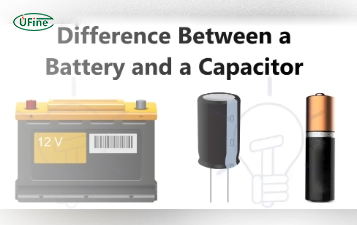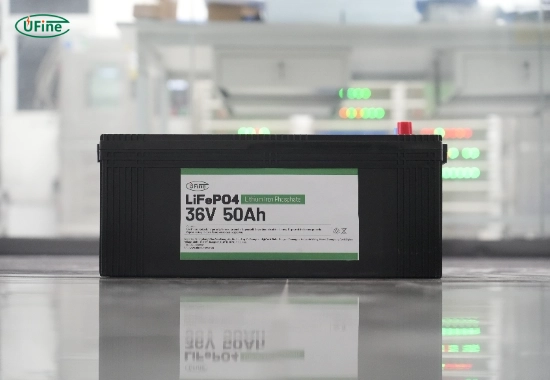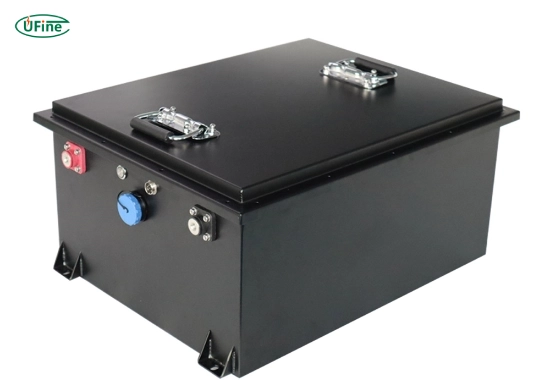
- Part 1. What are lithium golf cart batteries?
- Part 2. What are deep cycle batteries?
- Part 3. How do lithium golf cart batteries compare to deep cycle batteries?
- Part 4. What are the advantages of lithium golf cart batteries?
- Part 5. What are the disadvantages of lithium golf cart batteries?
- Part 6. What are the advantages of deep cycle batteries?
- Part 7. What are the disadvantages of deep cycle batteries?
- Part 8. Which battery is more cost-effective in the long run?
- Part 9. How do I choose between lithium golf cart batteries and deep cycle batteries?
- Part 10. FAQs
When it comes to powering golf carts, the choice between lithium golf cart batteries and deep cycle batteries can significantly impact performance, longevity, and overall user experience. As golf carts become more popular for recreational and practical uses, understanding the differences between these two types of batteries is crucial. This article will explore the features, benefits, and drawbacks of lithium and deep cycle batteries to help you make an informed decision.
Part 1. What are lithium golf cart batteries?
Lithium golf cart batteries are a modern alternative to traditional lead-acid batteries. They utilize lithium-ion technology, known for its efficiency and lightweight characteristics.
- Lightweight Design: One of the most significant advantages of lithium batteries is their weight. They are typically 50% lighter than lead-acid batteries, making them easier to handle and improving the overall performance of the golf cart.
- Longer Lifespan: Lithium batteries can last up to 10 years, depending on usage and maintenance. In contrast, deep-cycle batteries generally last 3 to 5 years.
- Fast Charging: Lithium batteries charge much more rapidly than traditional deep cycle options, often reaching a full charge in just a few hours.
Part 2. What are deep cycle batteries?
Manufacturers design deep-cycle batteries to provide steady power over long periods. People commonly use them in various applications, including golf carts.
- Lead-Acid Technology: Most deep-cycle batteries use lead-acid technology, which has been around for decades. This technology is reliable but has some limitations.
- Durability: Deep cycle batteries are known for their robust construction and ability to withstand rough conditions, making them suitable for outdoor use.
- Cost-Effective: Deep-cycle batteries generally have a lower upfront cost than lithium batteries, making them appealing to budget-conscious consumers.
Part 3. How do lithium golf cart batteries compare to deep cycle batteries?
When comparing lithium golf cart batteries with deep cycle batteries, several key factors come into play that can influence your decision-making process.
Performance
Lithium golf cart batteries provide consistent power output throughout their discharge cycle. This means that even as they deplete, they maintain a stable voltage level until they are nearly empty. In contrast, deep cycle batteries tend to experience a gradual decline in voltage as they discharge, which can affect performance during use.
Lifespan
Lithium batteries have a significantly longer lifespan than deep-cycle batteries. Lithium options can last over 10 years, while deep-cycle alternatives typically last 3 to 5 years under similar usage conditions. This difference is crucial for users who want to invest long-term in their golf cart’s power source.
Weight
Weight plays a significant role in a golf cart’s overall performance. Lithium batteries are about 50% lighter than traditional lead-acid deep-cycle batteries. For example, a typical lithium battery weighs around 60 pounds, while a comparable deep-cycle battery might weigh between 120 and 130 pounds. This weight reduction not only improves handling but also enhances speed and efficiency.
Charging Time
Charging time is another critical factor in which lithium excels. A lithium battery can be fully charged in approximately 2 to 4 hours, while deep cycle batteries may take 8 to 12 hours to reach total capacity. This rapid charging capability means less downtime for users who need their carts ready quickly.
Depth of Discharge
Lithium batteries allow for a depth of discharge (DoD) of up to 100%, meaning you can use almost all the stored energy without damaging the battery. On the other hand, deep cycle batteries typically recommend a DoD of around 50% to ensure longevity. This difference means that lithium users can maximize their available power without worrying about battery health.
Comparison Table
|
Feature |
Lithium Golf Cart Batteries |
Deep Cycle Batteries |
|
Weight |
~60 lbs |
~120-130 lbs |
|
Lifespan |
10+ years |
3-5 years |
|
Charging Time |
2-4 hours |
8-12 hours |
|
Depth of Discharge |
Up to 100% |
Typically 50% |
|
Voltage Consistency |
Stable until near empty |
Gradual decline |
|
Cost |
Higher upfront |
Lower upfront |
Part 4. What are the advantages of lithium golf cart batteries?
Lithium golf cart batteries offer several advantages that make them increasingly popular among users:
- Efficiency: These batteries have a higher energy density, meaning they can store more energy in a smaller space.
- Consistent Power Output: Lithium batteries provide a consistent voltage output throughout their discharge cycle, unlike deep cycle batteries that may lose power as they discharge.
- Eco-Friendly Options: Many lithium battery manufacturers focus on sustainable practices and materials, making these options more environmentally friendly.
Part 5. What are the disadvantages of lithium golf cart batteries?
While there are many benefits to lithium batteries, they also come with some drawbacks:
- Higher Initial Cost: The upfront investment for lithium batteries can be significantly higher than that of deep cycle alternatives.
- Temperature Sensitivity: Lithium batteries can be sensitive to extreme temperatures, which may affect performance if not managed properly.
- Specialized Chargers Needed: Lithium batteries may require specific chargers designed for their chemistry.
Part 6. What are the advantages of deep cycle batteries?
Deep cycle batteries have their own set of advantages that appeal to specific users:
- Lower Cost: Lithium options generally have lower initial purchase prices, making them accessible to many users.
- Proven Technology: Lead-acid technology has been used for decades and is well-understood by consumers and technicians alike.
- Availability: Deep cycle batteries are widely available at most automotive and hardware stores.
Part 7. What are the disadvantages of deep cycle batteries?
Despite their benefits, deep cycle batteries also have some notable disadvantages:
- Shorter Lifespan: Deep cycle batteries typically need replacement sooner than lithium options.
- Weight Issues: Their heavier design can affect the overall performance of the golf cart, especially in terms of speed and handling.
- Longer Charging Times: Users often wait longer for these batteries to recharge fully.
Part 8. Which battery is more cost-effective in the long run?
When evaluating cost-effectiveness between lithium golf cart batteries and deep cycle options, consider both initial investment and long-term savings:
While lithium batteries have a higher upfront cost (often ranging from $800 to $1,500), their longevity (over ten years) and reduced maintenance needs usually translate into lower total ownership costs over time.
In contrast, while deep-cycle batteries may initially cost between $150 and $300, their shorter lifespan may lead to more frequent replacements and higher long-term expenses when considering multiple purchases over time.
Part 9. How do I choose between lithium golf cart batteries and deep cycle batteries?
Choosing between these two types of batteries depends on several factors:
- Usage Patterns: If your golf cart is used frequently or for extended periods (like on extensive courses or during events), investing in lithium may be worthwhile due to its efficiency and longevity.
- Budget Considerations: If you’re on a tight budget or only use your cart occasionally (for example, during weekends), deep cycle might be a better option initially due to its lower cost.
- Weight Concerns: For those looking to maximize performance and speed in their golf carts—especially on hilly terrains—opting for lighter lithium options could be beneficial for handling dynamics.
- Charging Infrastructure: Consider whether you have access to appropriate charging equipment for lithium technology if you choose that route; specialized chargers may add additional cost or complexity.
Part 10. FAQs
-
What is the lifespan difference between lithium and deep cycle batteries?
Lithium golf cart batteries can last over 10 years with proper care, while deep cycle batteries typically last about 3 to 5 years under similar usage conditions. -
Are lithium golf cart batteries worth the investment?
Yes! While they come with a higher initial cost, their longer lifespan and efficiency often make them more cost-effective in the long run when considering total ownership costs. -
Can I use a regular charger for lithium golf cart batteries?
No! Specialized chargers explicitly designed for lithium technology are required to ensure safety and optimal performance during charging cycles. -
How do temperature extremes affect battery performance?
Lithium batteries can be sensitive to extreme temperatures; high heat or cold can impact their efficiency and lifespan if not appropriately managed through appropriate storage solutions or insulation methods. -
Which type of battery requires more maintenance?
Deep-cycle batteries generally require more maintenance than low-maintenance lithium options; regular checks on water levels and terminal corrosion are everyday tasks associated with lead-acid technology upkeep.
Related Tags:
More Articles

Capacitor vs Battery: What is the Difference?
Capacitor vs battery explained in detail. Learn the difference between capacitor and battery in energy storage, charging speed, lifespan, and real applications.
18650 Battery vs AA: Which Is Better for Your Device?
Compare 18650 vs AA batteries in capacity, voltage, rechargeability, and applications. Learn which battery type fits high-drain or everyday devices.
What is the Difference Between Battery Cell, Battery Control Module, and Battery Pack?
Compare battery cells, modules, and packs. Learn functions, design differences, control modules, and selection tips for EV, ESS, and industrial use.
How to Prevent LiPo Battery Explosion?
Can LiPo batteries explode or catch fire? Learn key causes of LiPo battery fires and proven charging, storage, and handling tips to reduce explosion risk.
Aluminium Ion Battery vs Lithium-Ion: A Detailed Comparison
Compare aluminium ion battery vs lithium-ion battery in energy density, charging speed, safety, cost, and uses. A practical guide for engineers and buyers.




